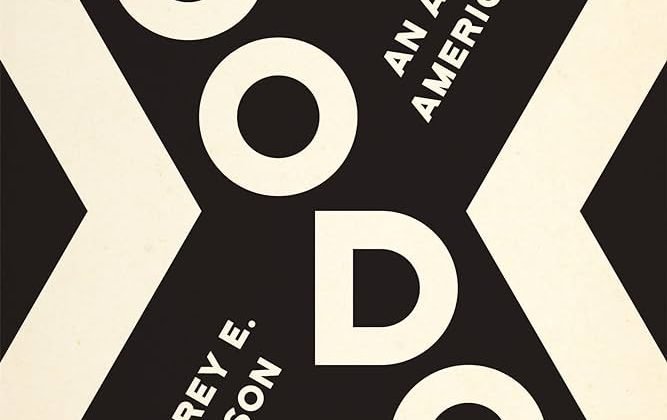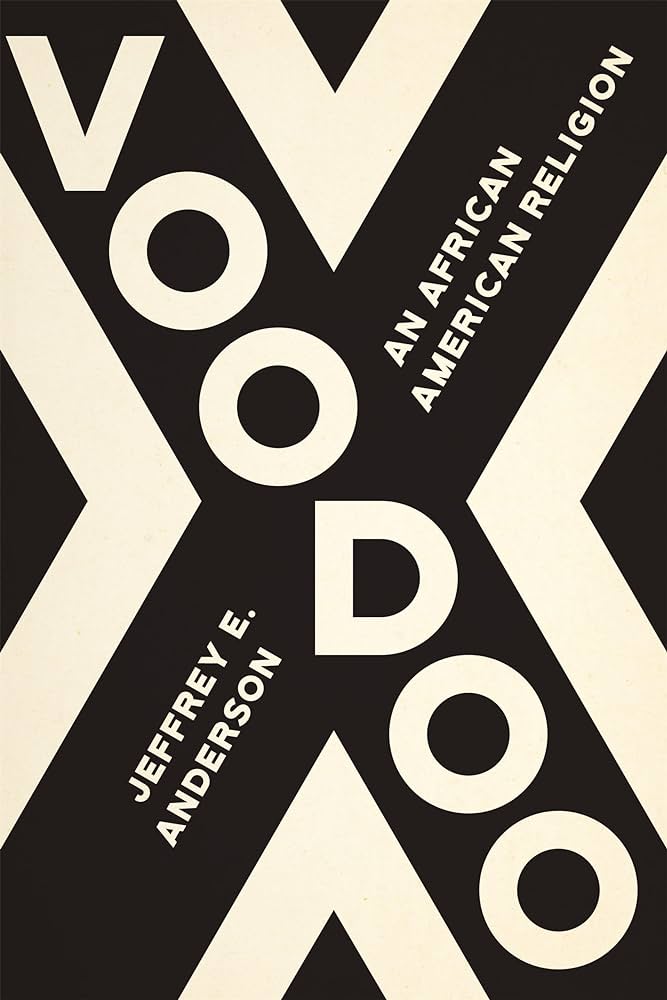

Jeffrey E. Anderson is Professor of History and Associate Director of the School of Humanities at the University of Louisiana Monroe. This interview is based on his new book, Voodoo: An African American Religion (LSU Press, 2024).
JF: What led you to write Voodoo?
JA: There are two primary reasons I wrote Voodoo. In the broad sense, I find that many scholars either ignore religion and the supernatural or treat them as merely expressions of other social forces, such as economics. My study and personal experience lead me to conclude instead that they are historical forces in their own right that help to shape society. They deserve more serious study than they receive. More specifically, I have been interested in the Voodoo of the Mississippi River Valley for some years and have found myself frustrated by the fact that there were no reasonably accurate book-length treatments of it available, with the exceptions of some biographies of Marie Laveau, its most famous practitioner.
JF: In 2 sentences, what is the argument of Voodoo?
JA: I argue that Voodoo, an oft-misrepresented and virtually always misunderstood religion, was a faith with African roots that developed into a distinctly American religion between colonial times and its eventual disappearance as a living religion during the late 1940s. Moreover, I argue that it was not confined to New Orleans, as many scholars and popular writers assume, but was also present in other locales along the Mississippi River and its tributaries.
JF: Why do we need to read Voodoo?
JA: Voodoo is meant to speak to anyone interested in learning about what Voodoo was during its heyday, not to intellectualize it beyond recognition, as can sometimes happen when scholars write about religion. For that reason, I focus on identifying and describing the deities and ceremonies of the historical faith, discussing the work of its ministers, and examining the ways it changed over time. To that end, I spent a great deal of time in archives as well as traveling around Africa and the Caribbean to speak with practitioners of its closest living relatives, including but not limited to Haitian Vodou and West African Vodun. My hope is that the book will be the first recourse for anyone seeking information about the religion as well as a starting point for scholars who want to produce their own studies.
JF: Why and when did you become an American historian?
JA: As far back as I remember, I have been drawn to history, but not until I went to college did I realize that fact. Prior to that point, I thought of myself as simply fascinated with myths, legends, and the supernatural. To my youthful mind, the scores of history books that lined my shelves were just supporting texts for the world of legend. When I read Caesar’s Conquest of Gaul, for instance, I considered myself to be looking into background information for the legendary tales of Cassivellaunus battling the Romans found in Geoffrey of Monmouth’s History of the Kings of Britain.
Just before I started college, I became aware that I was interested in the American Civil War, and after enrolling as a business major, I quickly realized that I was just not that into honing my acquisitive ability. As I prepared to change majors, I thought deeply about what I really enjoyed studying and realized what everybody else probably already did: I loved history. I earned my bachelor’s from Samford University in Birmingham, Alabama, and went on to study southern history under the tutelage of Bertram Wyatt-Brown at the University of Florida.
JF: What is your next project?
JA: Frankly, I am not absolutely certain. No doubt I will write some short works on Voodoo, and I am interested in putting together a document collection on Voodoo, hoodoo, and conjure. Another topic that interests me is the Bell Witch, a spirit that reportedly afflicted the Bell family of northwest Tennessee during the early nineteenth century. Some of the stories that surround it resemble those told later by the Fox Sisters, the founders of Spiritualism, during the 1840s, and I am curious if there is a connection between the two. The problem is that most of the early writings about the Bell Witch came after those regarding the Fox Sisters’ claims of contact with the spirit world. I would like to look more deeply into the possible connection, even if I do so just for my own enlightenment.
JF: Thanks, Jeffrey!